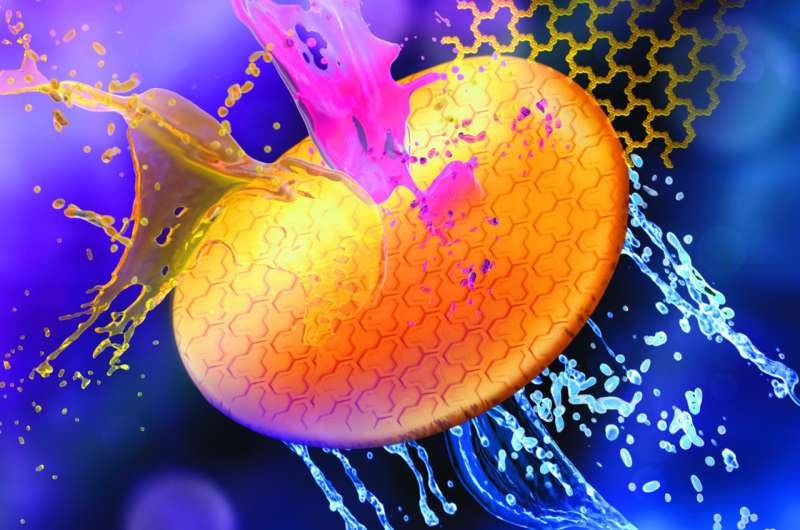This article has been reviewed according to Science X's editorial process and policies. Editors have highlighted the following attributes while ensuring the content's credibility:
fact-checked
peer-reviewed publication
trusted source
proofread
New membrane technology could lead to more effective and efficient water purification systems

A team of NYU Abu Dhabi (NYUAD) researchers has developed a novel approach that utilizes microwave technology to more easily synthesize and fine-tune a new type of membrane which effectively purifies water from a wide range of contaminants.
The membrane synthesis technique takes a few minutes, making it one of the fastest methods for creating covalent organic framework (COF) membranes. These membranes act as filters in devices designed to clean polluted water from specific contaminants, allowing its reuse in different applications—an important discovery at a time when efficient wastewater treatment becomes vital in a world threatened by water scarcity.
The new type of dual-faced membrane, characterized by its unique superhydrophilic and near-hydrophobic surfaces, enables efficient removal of contaminants like oils and dyes from water. This dual functionality not only enhances the filtration process but also endows the membranes with strong antibacterial properties, crucial for long-term usability and effectiveness.
Published in the Journal of the American Chemical Society, the study titled "Tunable Wettability of a Dual-Faced COF Membrane for Enhanced Water Filtration" presents this novel approach developed by Farah Benyettou and Asmaa Jrad under the leadership of Ali Trabolsi, Professor of Chemistry and Co-Principal Investigator at the NYUAD Water Research Center. The team's method involves a one-step microwave-mediated synthesis that occurs at the liquid-water vapor interface, allowing precise control over the membrane's properties without the need for subsequent modifications.
"By fine-tuning the reaction time, we can adjust the membrane's thickness and its hydrophilic and hydrophobic characteristics," explained Benyettou.
"This capability allows us to tailor the membrane specifically for various types of water pollutants, significantly enhancing both the efficiency and speed of water purification," explained Jrad.
The COF membranes developed by the NYU Abu Dhabi team demonstrate superior performance in removing oil from oil-in-water mixtures and boast exceptional water flux due to their multilayered structure and consistent porosity. Furthermore, these membranes outperform traditional polymeric ones in resisting organic fouling, a common challenge in membrane-based water filtration systems.
This technology represents a significant leap forward in the synthesis of high-quality, crystalline, free-standing COF membranes.
"Our method not only simplifies the production process but also enhances the separation capabilities of the membranes, offering a promising solution to critical water purification challenges worldwide," Trabolsi added.
More information: Farah Benyettou et al, Tunable Wettability of a Dual-Faced Covalent Organic Framework Membrane for Enhanced Water Filtration, Journal of the American Chemical Society (2024). DOI: 10.1021/jacs.4c07559
Journal information: Journal of the American Chemical Society
Provided by New York University


















